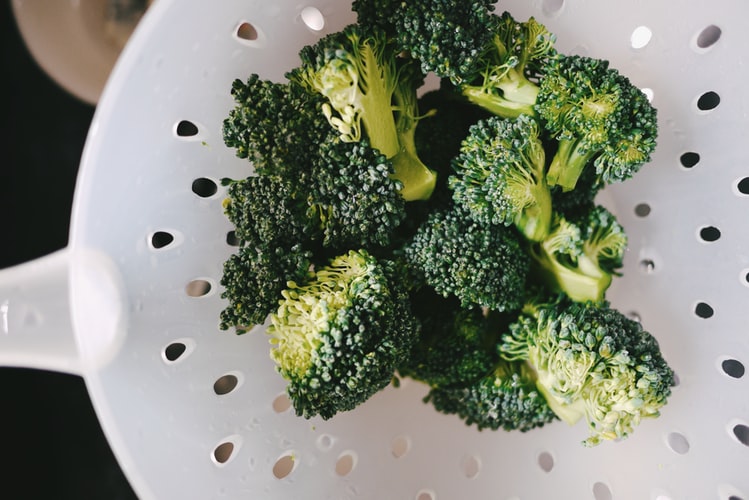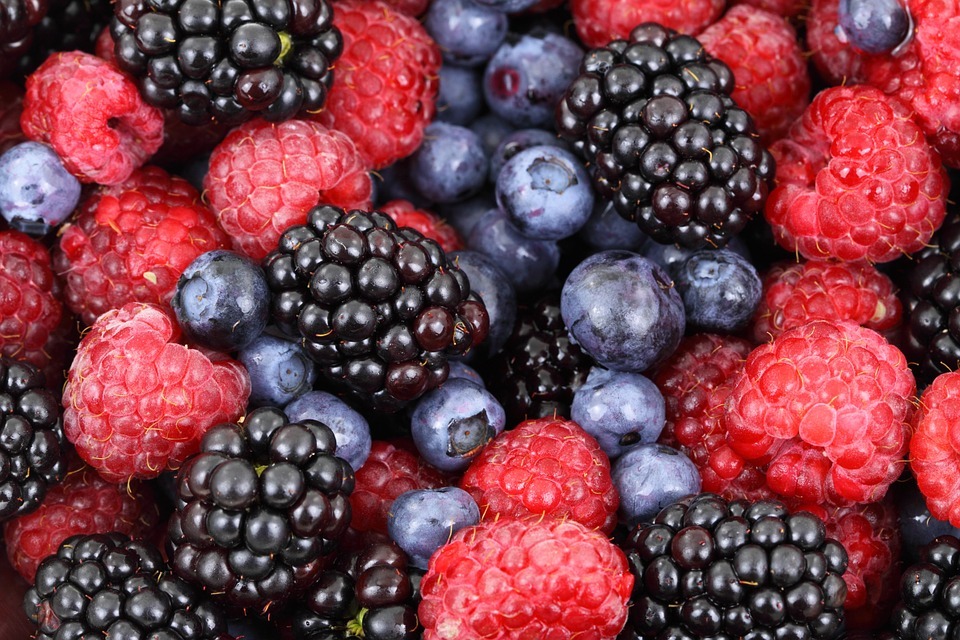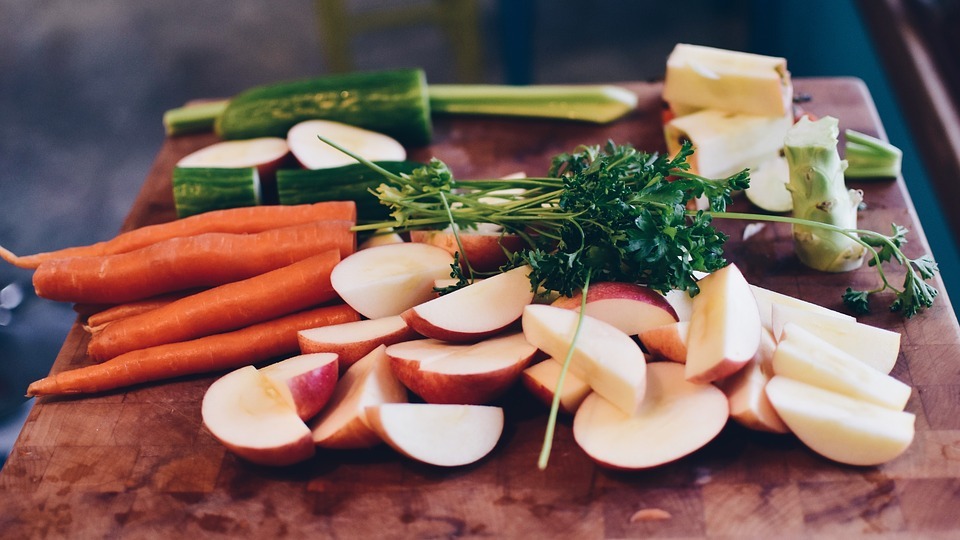Can Vegetable Juice Replace Whole Vegetables?
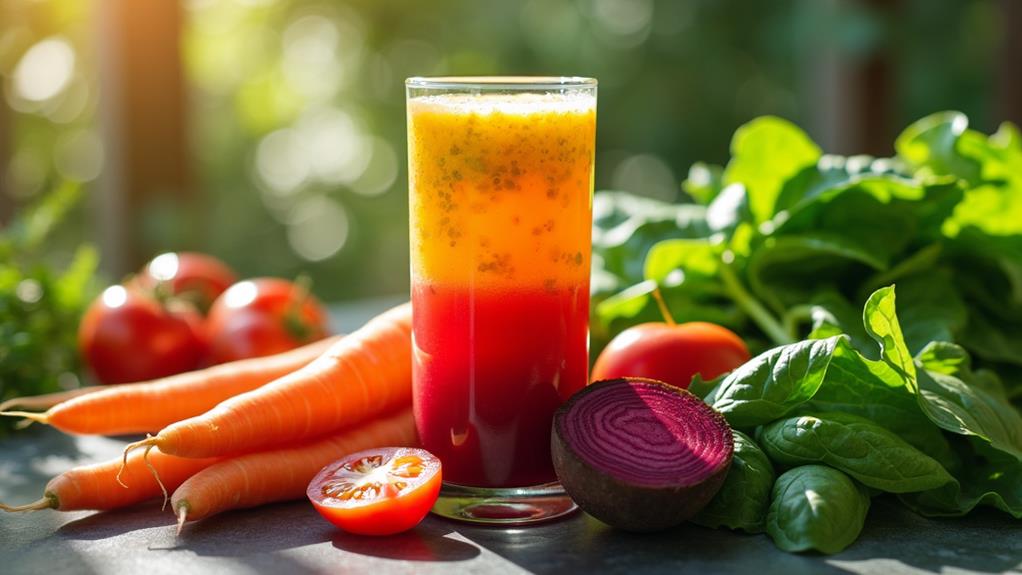
Vegetable juice can't fully replace whole vegetables in your diet. While juice offers crucial vitamins and minerals, it lacks the fiber found in whole vegetables, key for digestion and heart health. Without sufficient fiber, you may face issues like constipation and higher risk of chronic diseases. Juice might help count towards your daily vegetable intake, but it's best to balance it with whole veggies to gain their full nutrient spectrum. Keep an eye on sodium levels in store-bought juices. Choosing a diet that combines both juice and whole vegetables can enhance your nutritional benefits. Uncover more about best dietary strategies now.
Nutritional Content Comparison
When comparing the nutritional content of vegetable juice and whole vegetables, it's clear that both offer significant vitamins and minerals. However, there's a substantial difference in fiber content between the two. While vegetable juice provides necessary nutrients, it lacks the fiber that whole vegetables offer, which is fundamental for digestive health. Fiber is a key component that helps maintain a healthy digestive system, and without it, you might miss out on some health benefits.
In terms of nutritional comparison, whole vegetables are more advantageous because they contain a wider variety of nutrients and phytochemicals that are often lost in the juicing process. These phytochemicals are compounds found naturally in plants that contribute to comprehensive health. Although vegetable juice can count towards your recommended intake of 2 1/2 cups of vegetables per day, it should be a supplement, not a replacement for whole vegetables.
When choosing vegetable juice, opt for low-sodium options to avoid excessive sodium intake, a common issue with some commercial juices. Remember, relying too heavily on vegetable juice may lead to inadequate fiber intake, affecting your digestive health and potentially increasing the risk of chronic diseases.
The Role of Fiber
Fiber often plays an important role in maintaining your digestive health, and it's something you won't find in significant amounts in vegetable juice. Whole vegetables, on the other hand, are brimming with fiber, offering around 2-5 grams per serving. This key nutrient helps prevent constipation and guarantees regular bowel movements, which are critical for your comprehensive well-being. By choosing vegetable juice over whole vegetables, you might miss out on these benefits, as juice typically lacks the fiber necessary to support a healthy digestive system.
Incorporating a variety of fiber sources, particularly whole vegetables, into your diet is significant for more than just digestion. A higher fiber intake is linked to a reduced risk of heart disease, diabetes, and obesity. These whole foods contribute to a balanced diet, helping to regulate blood sugar levels and providing a sense of fullness that can aid in weight management. Relying solely on vegetable juice can lead to inadequate fiber consumption, impacting your long-term health outcomes. To maintain peak health, prioritize whole vegetables in your diet and consider vegetable juice as a supplement rather than a replacement. This approach supports better health outcomes by guaranteeing adequate fiber intake.
Health Risks of Juicing
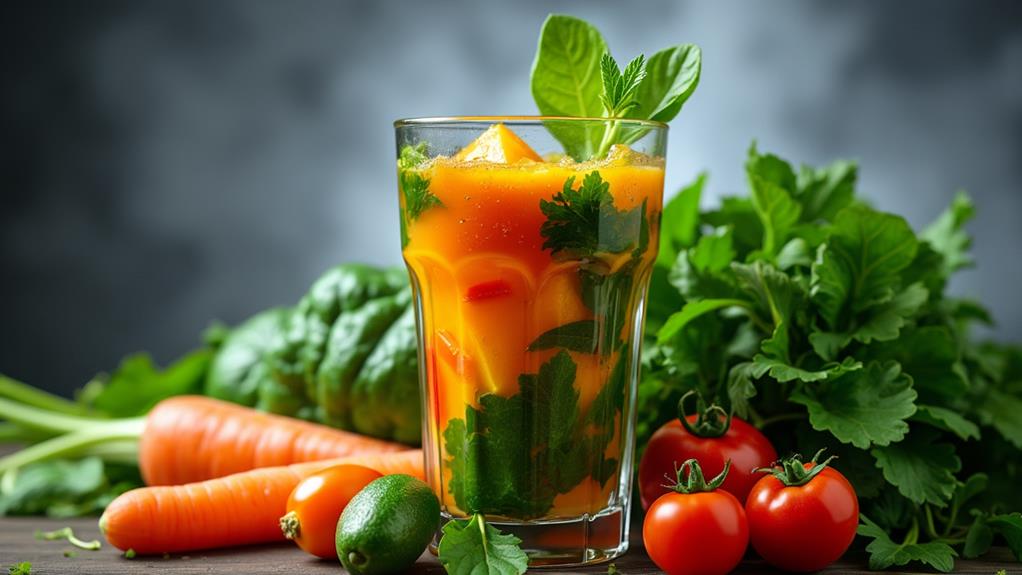
Juicing, while popular for its convenience, poses several health risks that shouldn't be overlooked. When you juice, you remove beneficial fiber from whole vegetables, which is essential for maintaining good digestive health. Over time, relying too heavily on vegetable juice can lead to inadequate fiber intake, negatively impacting your digestion. Moreover, juice diets often involve severe calorie restriction, which can result in nutrient deficiencies. Without sufficient protein and fats, your metabolism may slow down, making it harder to maintain energy levels and muscle mass.
Another concern with juicing is its effect on blood sugar. Consuming high amounts of fruit juice can spike your blood sugar levels, increasing the risk of type 2 diabetes and contributing to metabolic syndrome. This makes it significant to take into account the balance between fruit and vegetable juices in your diet. In addition, many people turn to juice cleanses for detoxification, but these lack strong scientific support. You might experience symptoms like diarrhea and fatigue due to the absence of solid food.
Safe Juicing Practices
To guarantee your juicing habits are both safe and healthy, it is vital to adopt some best practices. Start by thoroughly washing vegetables to remove any contaminants before juicing. This step is significant in minimizing your exposure to harmful substances. Opt for organic options, especially for produce on the Dirty Dozen list, to further reduce pesticide exposure.
Using clean juicing equipment is another important safe juicing practice. Bacteria can thrive on unwashed surfaces, leading to potential bacterial growth in your fresh juice. Always clean your juicer thoroughly after each use to keep your vegetable juice free from harmful microbes.
When juicing vegetables, consider cold-press juicing methods. They retain more nutritional content compared to traditional high-speed centrifugal juicers, maximizing the health benefits of your juice. Furthermore, only prepare as much juice as you can consume immediately. Fresh juice should be enjoyed right after preparation to prevent bacterial growth that occurs when juice sits too long.
Balanced Consumption Strategy
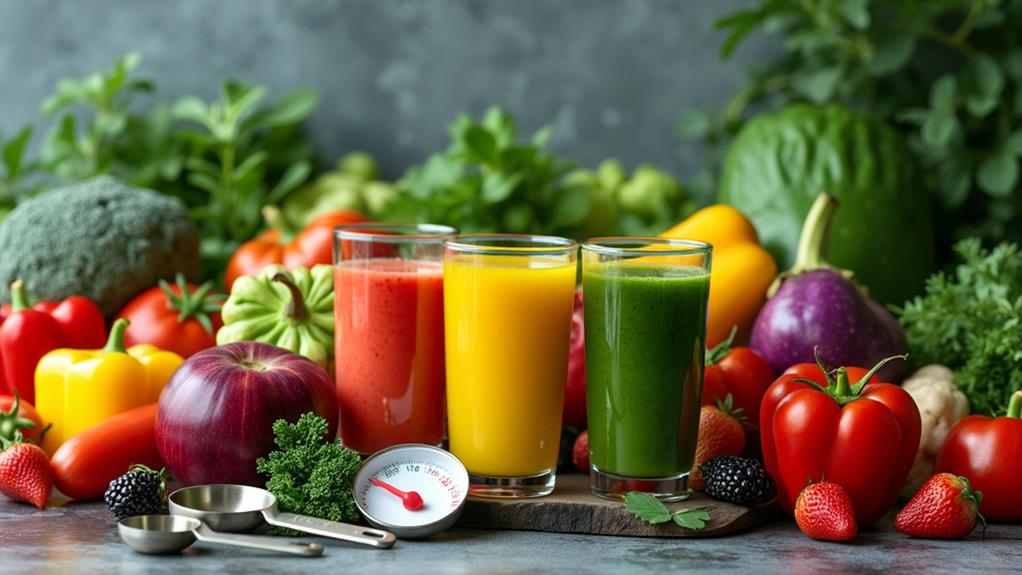
After confirming your juicing habits are safe, it's vital to think about how to balance juiced and whole vegetables in your diet. Vegetable juice can enhance your daily vegetable intake, but it shouldn't replace whole vegetables entirely. Whole vegetables are rich in healthy fiber, which is significant for digestion and comprehensive health. This fiber content also helps you feel full, preventing overeating and supporting a balanced diet.
Aim to consume about 2 1/2 cups of vegetables daily, combining both whole and juiced forms. This approach allows you to enjoy the nutritional benefits of vegetable juice while maintaining sufficient fiber intake. It's noteworthy that while vegetable juice offers many nutrients, it often lacks the fiber content found in whole vegetables. As a result, using juice as a supplement, not a substitute, is key to maximizing your vegetable intake.
Be cautious of sodium levels in commercially available juices. Some may contain high sodium, which can affect your health negatively. Checking labels guarantees your choices support your health goals. By balancing vegetable juice and whole vegetables, you can enjoy a varied diet that supports your nutritional needs and digestion effectively.

